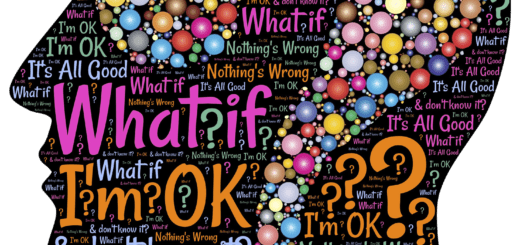Subconscious Mind and Decision-Making: Tapping into Wisdom

Hey there, amazing readers! 🖐️ Just a quick note: yes, we know there are a lot of ads here. Trust us, we get it—it’s not the prettiest look, but they help us keep this blog alive and kicking. Those pesky little ads cover the costs of all the behind-the-scenes magic, from hosting and tech stuff to creating content we hope you’ll love.
We’re committed to delivering quality posts, and your support (even just sticking around despite the ads) means everything to us. So, bear with us, and thanks for helping us keep the good vibes rolling. Now, on to the fun stuff! 😉
TRANSLATE BUTTON AT THE END OF THE ARTICLE
Understanding the Subconscious Mind
The subconscious mind is like the hidden powerhouse within us, quietly influencing our thoughts, emotions, and behaviors without us even realizing it.
Unlike the conscious mind, which is responsible for our logical thinking and decision-making processes, the subconscious mind operates below our level of awareness, storing memories, beliefs, and emotions that shape our perceptions and actions.
It acts as a repository of past experiences, shaping our responses to various stimuli based on ingrained patterns and associations.
Understanding how the subconscious mind works can provide valuable insights into our decision-making processes and lead to more informed choices.
How the Subconscious Influences Decisions
Our subconscious mind plays a significant role in shaping the decisions we make on a daily basis.
While we may believe that our choices are rational and based on careful deliberation, many decisions are actually influenced by unconscious biases, emotions, and past experiences stored in the subconscious.
These hidden influences can impact everything from what we choose to eat for lunch to major life decisions.
By gaining awareness of these subconscious influences, we can better understand why we make certain choices and work towards making more intentional and informed decisions.
Unconscious Bias in Decision-Making
Unconscious bias refers to the attitudes and stereotypes that affect our understanding, actions, and decisions in an unconscious manner.
These biases are often shaped by societal norms, cultural influences, personal experiences, and even media portrayals.
When making decisions, our subconscious mind can be influenced by these biases, leading us to make choices that may not align with our true values or intentions.
By recognizing and addressing unconscious biases, we can mitigate their impact on our decision-making processes and make more objective and equitable choices.
The Role of Intuition in Decision-Making
Intuition is often described as a gut feeling or a sense of knowing without logical reasoning.
While intuition may seem mysterious, it is actually a product of our subconscious mind processing vast amounts of information and experiences to arrive at a quick decision.
Intuition can be a valuable tool in decision-making, providing insights and solutions that may not be immediately apparent through rational analysis.
By tapping into our intuition, we can access a deeper level of wisdom and make decisions that are aligned with our true desires and values.
Harnessing Subconscious Wisdom
Tapping into the wisdom of the subconscious mind can unlock a wealth of insights and knowledge that can guide our decision-making processes.
By accessing this reservoir of hidden information, we can gain a deeper understanding of ourselves, our motivations, and the world around us.
Harnessing subconscious wisdom involves cultivating self-awareness, practicing mindfulness, and being open to receiving intuitive guidance.
By actively engaging with our subconscious mind, we can tap into its vast potential and make decisions that are more aligned with our authentic selves.
Strategies for Accessing Subconscious Insights
There are several strategies that can help us access the insights and wisdom of the subconscious mind to inform our decision-making.
Some effective techniques include:
Meditation and mindfulness practices to quiet the conscious mind and tune into our inner thoughts and feelings.
Journaling to explore our thoughts, emotions, and patterns of behavior.
Dream analysis to uncover hidden messages and symbols from the subconscious.
Creative activities such as painting, writing, or music to tap into the unconscious mind.
Seeking feedback from trusted friends or mentors to gain different perspectives on a decision.
Benefits of Tapping into the Subconscious Mind
Tapping into the subconscious mind can offer a range of benefits when it comes to decision-making.
Some of the advantages include:
Increased self-awareness and understanding of our true desires and motivations.
Enhanced creativity and problem-solving abilities by accessing intuitive insights.
Improved emotional intelligence and empathy towards others.
Greater clarity and confidence in decision-making processes.
Alignment with our values and authenticity in choices.
Overcoming Obstacles to Subconscious Decision-Making
While tapping into the subconscious mind can be a powerful tool for decision-making, there are obstacles that can hinder this process.
Common challenges include:
Resistance to exploring deep-seated emotions and beliefs.
Fear of uncertainty or the unknown outcomes of decisions.
Overreliance on logic and rational thinking over intuition.
External distractions and noise that prevent quiet reflection.
Lack of trust in one’s own instincts and inner wisdom.
Developing Intuition as a Decision-Making Tool
Developing intuition as a decision-making tool involves honing our ability to listen to our inner voice and trust our instincts.
Some tips for developing intuition include:
Paying attention to gut feelings and bodily sensations when making decisions.
Practicing mindfulness to quiet the conscious mind and tune into intuitive insights.
Reflecting on past experiences where intuition led to positive outcomes.
Seeking feedback from others on how intuition has played a role in their decision-making.
Trusting the process and being open to receiving guidance from the subconscious mind.
Trusting Your Gut: The Power of Intuition
Trusting your gut is about having faith in your intuition and the wisdom of the subconscious mind.
While it may seem counterintuitive to rely on feelings and instincts over logical analysis, intuition can provide valuable guidance in decision-making.
By trusting your gut, you can tap into a deeper level of understanding and make choices that are in alignment with your true self.
Cultivating trust in your intuition involves being open to receiving messages from the subconscious and having confidence in your ability to make sound decisions based on inner wisdom.
Using Mindfulness to Enhance Decision-Making
Mindfulness is a practice that involves being fully present and aware of our thoughts, emotions, and sensations in the present moment.
By cultivating mindfulness, we can enhance our decision-making processes by quieting the noise of the conscious mind and tuning into the wisdom of the subconscious.
Mindfulness can help us become more attuned to our inner guidance, emotions, and values, leading to more intentional and authentic decisions.
By incorporating mindfulness practices into our daily routine, we can access a deeper level of awareness and make choices that are in alignment with our true selves.
Balancing Logic and Intuition in Decision-Making
Balancing logic and intuition in decision-making involves integrating both rational analysis and intuitive insights to arrive at well-rounded choices.
While logic can provide structure and reasoning to our decision-making processes, intuition can offer creative solutions and deeper insights that may not be immediately apparent.
By striking a balance between logic and intuition, we can make decisions that are both informed and aligned with our true desires and values.
Cultivating this balance involves trusting in the power of both our conscious and subconscious minds to guide us towards making choices that are in our best interest.
Conclusion
In conclusion, tapping into the wisdom of the subconscious mind can be a powerful tool for enhancing decision-making processes.
By understanding how the subconscious influences our choices, developing intuition as a decision-making tool, and harnessing mindfulness practices, we can access a deeper level of insight and make decisions that are aligned with our true selves.
Balancing logic and intuition, overcoming unconscious biases, and trusting our gut instincts can lead to more authentic and intentional decision-making.
By actively engaging with our subconscious mind and tapping into its hidden reservoir of wisdom, we can navigate life’s complexities with clarity, confidence, and authenticity.

The Enlightenment Journey is a remarkable collection of writings authored by a distinguished group of experts in the fields of spirituality, new age, and esoteric knowledge.
This anthology features a diverse assembly of well-experienced authors who bring their profound insights and credible perspectives to the forefront.
Each contributor possesses a wealth of knowledge and wisdom, making them authorities in their respective domains.
Together, they offer readers a transformative journey into the realms of spiritual growth, self-discovery, and esoteric enlightenment.
The Enlightenment Journey is a testament to the collective expertise of these luminaries, providing readers with a rich tapestry of ideas and information to illuminate their spiritual path.
Our Diverse Expertise 🌟
While our primary focus is on spirituality and esotericism, we are equally passionate about exploring a wide range of other topics and niches 🌍📚. Our experienced team is dedicated to delivering high-quality, informative content across various subjects ✨.
To ensure we provide the most accurate and valuable insights, we collaborate with trusted experts in their respective domains 🧑🏫👩🏫. This allows us to offer well-rounded perspectives and knowledge to our readers.
Our blog originally focused on spirituality and metaphysics, but we’ve since expanded to cover a wide range of niches. Don’t worry—we continue to publish a lot of articles on spirituality! Frequently visit our blog to explore our diverse content and stay tuned for more insightful reads.






